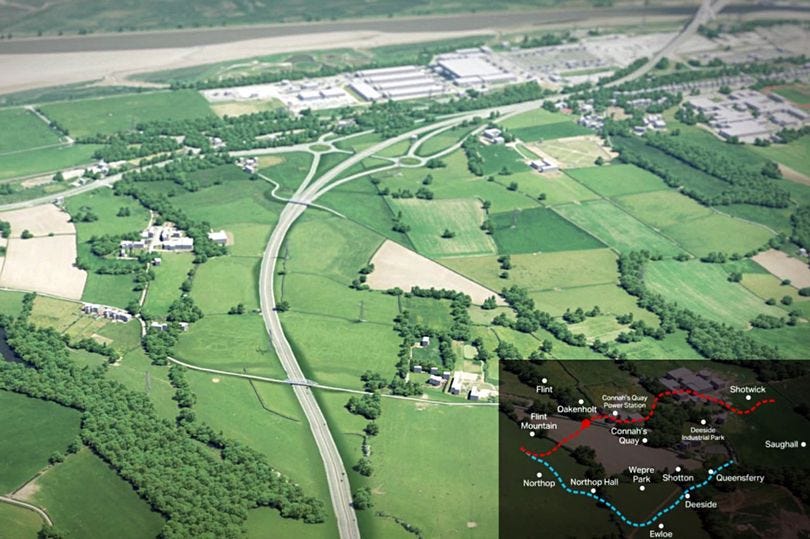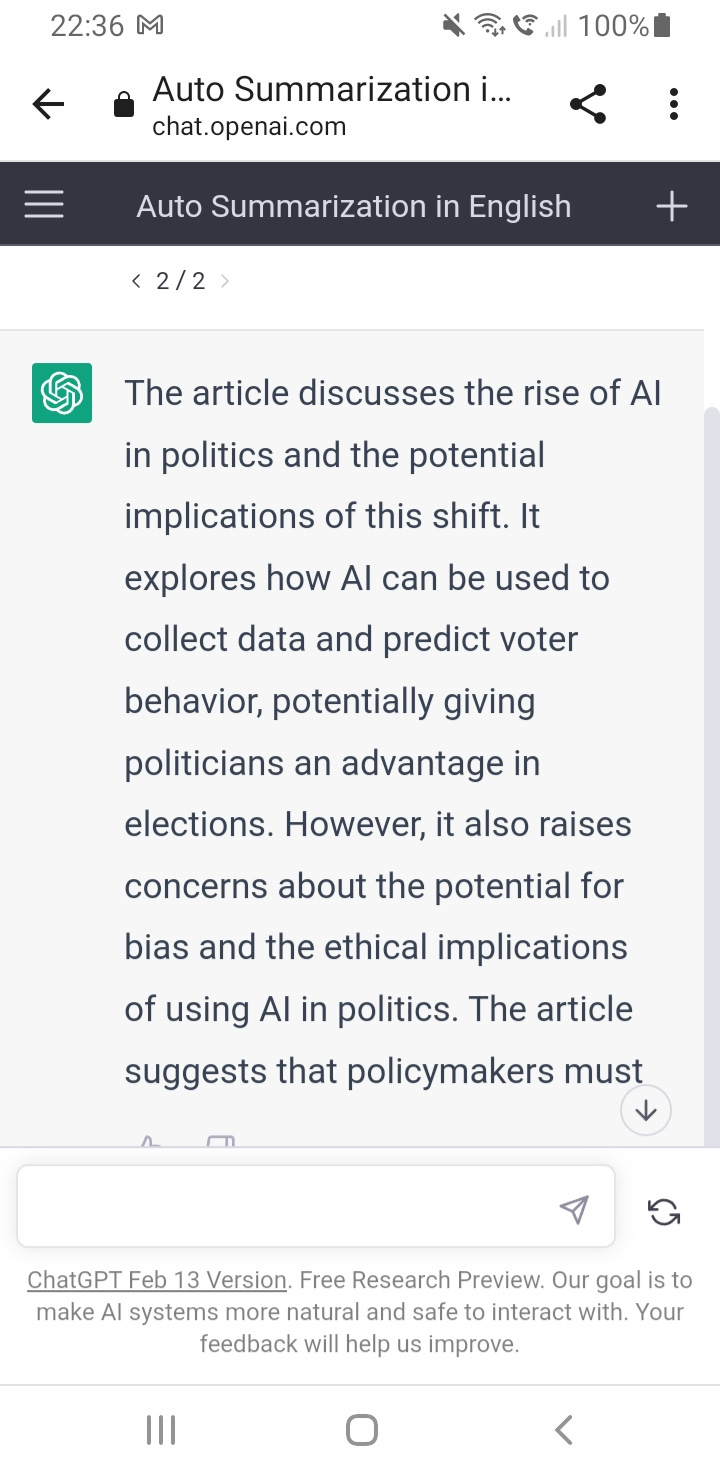Welcome to Just Two Things, which I try to publish three days a week. Some links may also appear on my blog from time to time. Links to the main articles are in cross-heads as well as the story. A reminder that if you don’t see Just Two Things in your inbox, it might have been routed to your spam filter. Comments are open.
1: Against everything
There was a demonstration in Oxford (England) at the weekend on the city’s proposals to implement a number of low traffic areas, but the demonstration was about more than that.
The climate journalist Dave Vetter covered the march, and shared a photograph of some of the flags and banners:





Tom Seward, a reporter on the Oxford Mail, was also there. More tellingly, perhaps, he shared a photograph of the leaflets that the protesters handed out during the march.
Normally, protestors against low traffic neighbourhoods are affluent locals with an over-developed sense of entitlement and a refusal to understand that traffic doesn’t actually work according to their ‘common-sense’ view of how it works. (Traffic isn’t water).
These protesters aren’t those protestors. It’s worth listing out the things on this leaflet, because they constitute a worldview, even if it’s not a worldview that’s immediately accessible to those who don’t share it.
Sex Education in Primary Schools? A dangerous form of indoctrination?
Why is the Price of Petrol So High? Additional 23% fuel tax rise planned by the UK Government April 2023
Geoengineering Why? Weather manipulation & long-term outcomes
Why Did the 1% Get Richer During 2020? The ten richest men doubled their fortunes
UK Cost of Living Crisis? As the rich get richer, the rest of us are paying more?
Why is The News Not on The News? Can we trust the media?
What is the World Economic Forum? Why are so many politicians involved in the WEF?
Cashless Society? What are the Risks? Who are we excluding in society by removing cash?
The Global Pandemic of Trafficked Children. Why is this not headline news?
Electromagnetic Fields (EMF) Health Concerns? 5G transmission towers popping up everywhere
Why Was There No Debate Over the Pandemic? Share your personal experience on the public enquiry
The Mental Health Crisis? The health costs of mask wearing and lockdowns on society
Why are our freedoms and rights being curtailed? (The) Government bills affecting our freedom
(What if) excess deaths are not related to covid?
This list isn’t complete. Low Traffic Neighbourhoods aren’t on it, nor is the 15-minute city, which is a recent addition to this ‘Against everything’ agenda. This is the idea that the resources that a citizen needs in the city should be available to them within 15 minutes—promoted most notably by the left-wing mayor of Paris, Anne Hidalgo. This was brought up recently in the House of Commons by a right-wing Conservative MP, which attracted the interest of Jon Elledge in The New Statesman:
Nick Fletcher MP demanded a “debate on the international socialist concept of so-called 15-minute cities and 20-minute neighbourhoods”. “Ultra-low emissions zones in their present form do untold economic damage to any city,” Fletcher continued. “The second step after these zones will take away personal freedoms as well… That cannot be right.”
Since my personal view is that the car and the vast infrastructures that it conjured up is the emotional and economic engine—literally and metaphorically—that sits right at the beating heart of modern industrial capitalism, I’m not well placed to engage with this.
But I think we must engage with this list, since it conveys some deep sense of disengagement, and it is—according to Tom Steward—one that resonated with passers-by and taxi-drivers.
I think there are several things going on here, all at once.
The first is that while this list is a complete ragbag, but that some of these things are true, and broadly speaking, unjust. The wealthy did get wealthier during the pandemic. Our (in Britain) rights and freedoms are being curtailed by government legislation. Ordinary people are paying for the cost of living crisis. The World Economic Forum is a hegemonic project with a grandiloquent title that seeks to align the interests of different elements of the global elite, finance and politicians included.
The easy way to describe all of this is as a conspiracy theory, and it’s possible to trace the worldview here back to the idea of the ‘New World Order’, sadly not the fine record by Curtis Mayfield but a theory that
a shadowy elite force is trying to implement a totalitarian world government. Proponents of the ‘New World Order’ conspiracy believe a cabal of powerful elite figures wielding great political and economic power is conspiring to implement a totalitarian one-world government.
I went back to an episode of the BBC’s Thinking Allowed that I’d listened to during the pandemic which explored conspiracy theories. It spoke to Hugo Leal, of Cambridge University’s CRASSH programme, who was part of the team that worked on the ‘Conspiracy and Democracy’ programme between 2013 and 2018.
He offered a four part characterisation of conspiracy theories. First, that they are about secrecy, or at least facts which are not publicly acknowledged. Second, they are about power and the powerful. Third, they are about a form of self-interest in which the power promote certain things for their own benefit. And fourth, the “theories” represent quasi-religious beliefs in that they can’t be proved wrong.
(Photo of grafitti by Christian Cable, via Wikipedia. CC BY 2.0)
Historically, the ‘New World Order’ theory tended to bounce around within the American libertarian right, and Christian fundamentalist sects. But in the 1990s or thereabouts it broke out. The high profile fundamentalist preacher Pat Robertson wrote a book with that title, and George Bush used the phrase—he intended something slightly different by it, I think. There’s a longer cultural history here, but suddenly it was all over the place.
But the thing is: the politics of globalisation has a lot of the characteristics that Leal mentions. There’s whole rafts of private or little reported agreements between corporations and governments—for example, Energy Charter Treaties. Power floated away from democratic places and into elites, helped by flows of wealth. Elites clearly promoted things for their own benefit (hard to draw another conclusion from the second Iraq War, for example, or even the way that quantitative easing worked in practice). So it may be that although this populist agitation has the air of a conspiracy theory, it may be rooted in a real experience of the world.
I think there are two aspects here.
First: I wrote a piece here a couple of years ago trying to understand anti-vaxxers, and reviewed some of the available literature. The money quote in this piece, from The Lancet was about the idea of ‘social solidarity’: that you need to provide some of this if you then want to people to believe you when you ask them to join in with it:
The widespread impacts of the pandemic have illuminated the structural violence embedded in society. Now these communities are being asked to trust the same structures that have contributed to their experiences of discrimination, abuse, trauma, and marginalisation in order to access vaccines and to benefit the wider population.
I think that KTNs and the ‘15 minute city’ are about forms of social solidarity—inclusive, better for health and social outcomes, etc—but if you haven’t experienced this, then you are going to reach for a different explanation.
The second is drawn from my current reading of Dougald Hine’s book At Work in the Ruins. The book is about the gap that is left by the end of modernity. Hine—who is, for clarity, no conspiracy theorist—writes about the difference between knowledge and knowing.
One of the problems with privileging science—for all the values that scientists have and the value that science brings—is that it is about knowledge and not knowing. As things start to degrade around us (climate, economies, health, and so on) we try to get to understandings of why this is. He wrestles with different critiques of approaches to the pandemic, and quotes James Bridle’s book The New Dark Age:
Conspiracy theories often function as ‘a kind of folk knowing: an unconscious augury of the conditions, produced by those with a deep, even hidden, awareness of current conditions and no way to articulate them in scientifically acceptable terms’ (p.92).
Hine worries that science isn’t able to carry the weight of knowing of a subject such as the climate change, or of the pandemic. He’s fortunate, in that he commands a high degree of social capital. I wonder if the protestors in Oxford are also trying to fill the gap between knowledge and knowing, but with an experience of the social and economic world that has conditioned them, perhaps rightly, to be suspicious.
2: The limits of roads
I mentioned briefly the Wales’ Government’s Roads Review last week, and it’s worth coming back to that here. I think it’s the clearest policy statement yet on the limits of roads as a central plank in transport policy. (I’ll do this briefly, since the piece above is so long).
The background: in 2021 the Welsh Government set up an independent panel to review new road schemes funded by it. It may be relevant that the panel was set up by the Deputy Minister for Climate Change. Anyway, the panel reported in September last year, and the Government has been thinking about it since then.
The background section mentions that the transition to electric cars and to low emission vehicles won’t deliver emissions reduction quickly enough. It also notes that increasing capacity in roads has been the go-to policy response to traffic problems for decades:
This has contributed to increasing reliance on the private car, resulting in urban sprawl and in many instances exacerbation of congestion, which has an economic impact and causes access issues as well as social and environmental problems. We need an approach that delivers social and economic benefits, is consistent with the Welsh Government’s land use, decarbonisation and transport policies and helps address the nature and climate emergencies together.
It’s also worth saying the the existing Wales Transport Strategy includes objectives on climate change, biodiversity, and resilience; equality and public health; the economy, local communities, and transport affordability; and supports the Welsh language and access to sporting and cultural events.
(Scrapped: the red dual carriageway route in North Wales. Image: Welsh Government)
The review had quite a wide ranging brief. It was asked, among other things, to:
ensure road investment is fully aligned to the delivery of the Wales Transport Strategy ambitions and priorities, Welsh Government Programme for Government commitments and Net Zero Wales.
develop a set of criteria which identify appropriate circumstances for expenditure of Welsh Government funds on roads
use these criteria to recommend which of current road projects should be supported, modified, or have support withdrawn.
The outcome of all of this is a set of four criteria that will inform future road building. I’ve edited these down slightly, but they seem to me to represent a step change in public policy that might also influence how other jurisdictions think about roadbuilding:
To support modal shift and reduce carbon emissions. This is about ensuring that future roads investment does not simply increase the demand for private car travel.
To improve safety through small-scale changes. Safety on the road network must be paramount... Speed limits should be considered as one of the primary tools for improving safety.
To adapt to the impacts of climate change. Climate change is already having an impact on our road network and is likely to become an increasing issue in future decades. Road investment can be justified to adapt for these circumstances.
To provide access and connectivity to jobs and centres of economic activity in a way that supports modal shift.
There’s also an over-arching objective as well:
In developing schemes, the focus should be on minimising carbon emissions, not increasing road capacity, not increasing emissions through higher vehicle speeds and not adversely affecting ecologically valuable sites.
And just to be clear, there will still be some spending on roads, although budget cuts may limit this anyway:
we will still need to provide connections to support sustainable social and economic development.
But the other objectives—public transport and model shift, active travel, decarbonisation, and safety—will be the frame for these, not an afterthought. Of course, I may still be disappointed here: road-building schemes are one of the great zombies of British politics. Every time you think they have been killed off they reappear. But the signs are promising.
Notes from readers: ChatGPT
Thanks to Nick Wray, who had the amusing idea of asking ChatGPT to summarise my recent piece on Ali Minai’s article in which he tested ChatGPT’s enthusiasm for inference by asking it about imaginary colleagues at the University of Cincinnati. As you’ll see from the screenshot, it made it up, since there was nothing about politicians, voters, data, or electoral behaviour in my piece.
Obviously I liked the fact that ChatGPT had demonstrated exactly the behaviours that caused Ali Minai to be concerned about the effects of ChatGPT in particular, and ‘sub-standrad AI’ in general.
As Nick said,
Reminds me of seminars when someone is bluffing because they haven’t prepped.
And as it happens, there’s been a couple of articles about ChatGPT’s tendency to bullshit, in the precise meaning of the term. By precise meaning, as in the definition coined by Harry G. Frankfurt, in his short book On Bullshit, here referenced by Ethan Zuckerberg:
the bullshitter, bluffing persuasively, “does not care whether the things he says describe reality correctly. He just picks them out, or makes them up, to suit his purpose.”
In theory the male pronoun ought to jar, but here it probably incorporates a gendered truth about bullshitters. Zuckerberg expands on the point:
That many contemporary examples of bullshit come from the world of tech is not incidental... (I)t’s much harder for us to call bullshit in the realm of technology, where an intelligent statement about machine learning might be indistinguishable to most audiences from marketing drivel.
Musk was sufficiently persuasive about self-driving cars—despite Tesla’s setbacks in the field—to create a small company worth more than the entire legacy auto industry. As it’s become clear that Musk is bluffing his way through his management of Twitter, the markets are sensing that his real genius may be in the production of drivel, and Tesla’s share price is being punished.
j2t#427
If you are enjoying Just Two Things, please do send it on to a friend or colleague.








